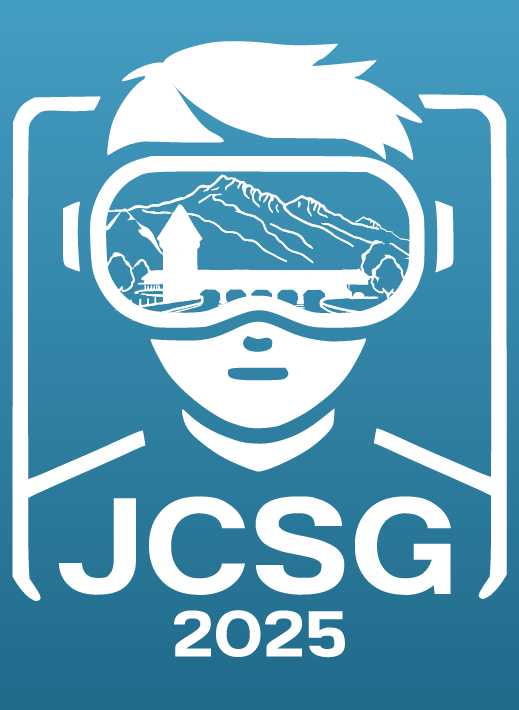
December 4-5 2025*
Lucerne University of Applied Sciences and Arts
Rotkreuz, Switzerland
* Pre-Conference “Marketplace” on the 3rd of December
Conference Aim
The Joint Conference on Serious Games (JCSG) is dedicated to Serious Games and their multifaceted characteristics. The conference addresses all aspects related to the theory and practice of Serious Games, encompassing design, development, evaluation, assessment and efficacy, immersion and engagement, technology and platform considerations, and the diverse application domains within which Serious Games can be utilized.
Serious Games are increasingly adopted for various purposes, including learning and training, health and wellbeing, industrial applications, marketing, and cultural engagement. Formalized approaches to design and evaluation are enhancing the discipline, enabling the creation of new Serious Games with a greater likelihood of achieving desired objectives and fostering a deeper comprehension of the circumstances leading to optimal outcomes.
JCSG aims to unite scientists and practitioners in Serious Games with those in contributing disciplines, encompassing educators and trainers, healthcare professionals (doctors, therapists, counselors), industry and management experts, artists, cultural professionals, and those involved in the cultural heritage sector.
This year, the conference will highlight works leveraging current AI technologies, such as Large Language Models and Multi-Agent Architectures, to enhance the design, implementation, and operation of Serious Games. The JCSG portal provides an overview of previous conferences, including all proceedings.
Topics
This year, the conference wants to highlight works that address the topic of specialized target audiences. For example: elderly citizens, children, or minorities vs majorities. We are also interested in the concept of ‘involuntary’ players (e.g. students in class, who have to play a Serious Game through their curriculum), cases which present an audience, that is not inclined to play a game, and how the Serious Games need to be designed to address their needs.
Authors are encouraged to submit work related to this theme where appropriate. As in all previous years, papers on topics not necessarily related to the year’s theme are also very welcome. These topics include (but are not limited to) the following:
Theory and technology: Scientific methods and concepts for
- – design and development of serious games
- – platform considerations (mobile platforms, game consoles, virtual, augmented and mixed reality, cross platform aspects, game engines, network and communication)
- – cost-effective production of serious games (authoring tools, collaborative authoring, procedural content generation, middleware)
- – personalized, adaptive serious games (user characteristics, player and gamer types, context models, personalization, player modelling, adaptive serious games)
- – collaborative learning and training environments (multiplayer serious games, game mastering, games and social networks, collaboration, competition)
- – interfaces and sensor technology in serious games (controllers and interfaces, bio sensors, motion controllers, novel interfaces across all platforms, location-based and ubiquitous technology)
- – evaluation studies (evaluation methodologies and evaluation design, models and metrics, evaluation tools, effectiveness, efficiency)
- – Serious Games Studies measuring the quality of particular Serious Games and/or Serious Games application areas
- – surveys (serious games studies and outcomes, serious games effects, use of technologies)
Best practice and application domains
- – field reports, demonstrations and evaluation studies of Serious Games
- – research prototypes and commercial games ‘more than fun’
- – games for health (personalized exergames, prevention, rehabilitation, cognition, movement)
- – games for behavior change (nutrition, lifestyle, environment-friendly mobility behavior)
- – social awareness games (security, gender-based violence, religion, climate, energy)
- – games for learning and education (from kindergarten to higher education, vocational and workplace training) simulation and training (medical training, surgical simulation, disaster management, manufacturing, industrial applications)
- – games for cultural engagement (e.g., history, art and music)
Business: Market studies, potentials and barriers
- – business models and market studies for serious games or serious games technologies
- – grand challenges and obstacles for game developers and publishers, e.g., expectations and acceptance or ethic-legal issues and privacy
